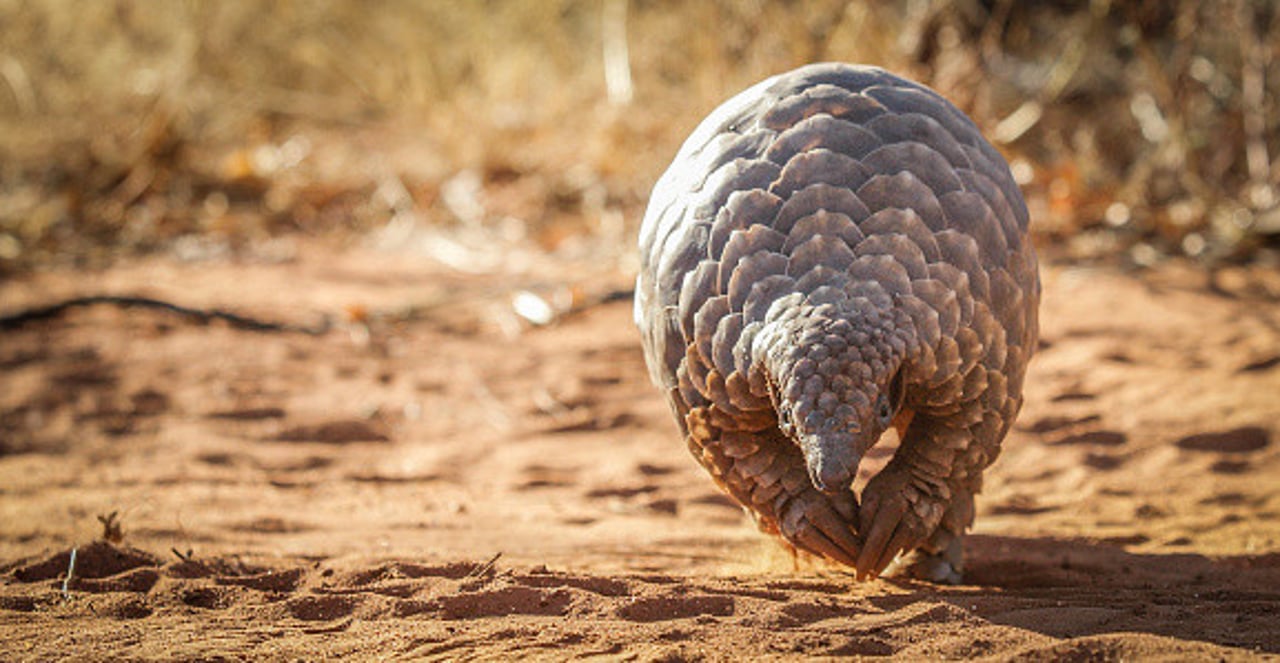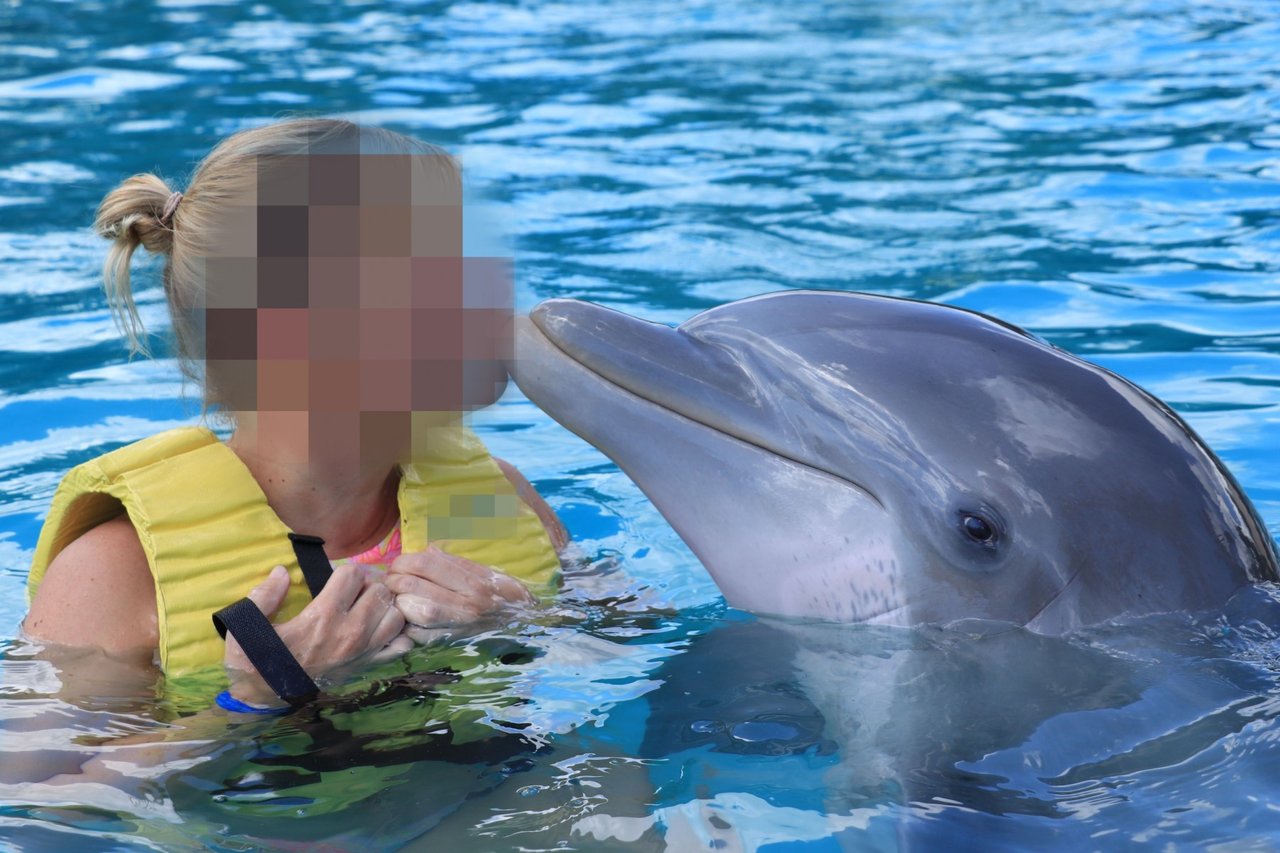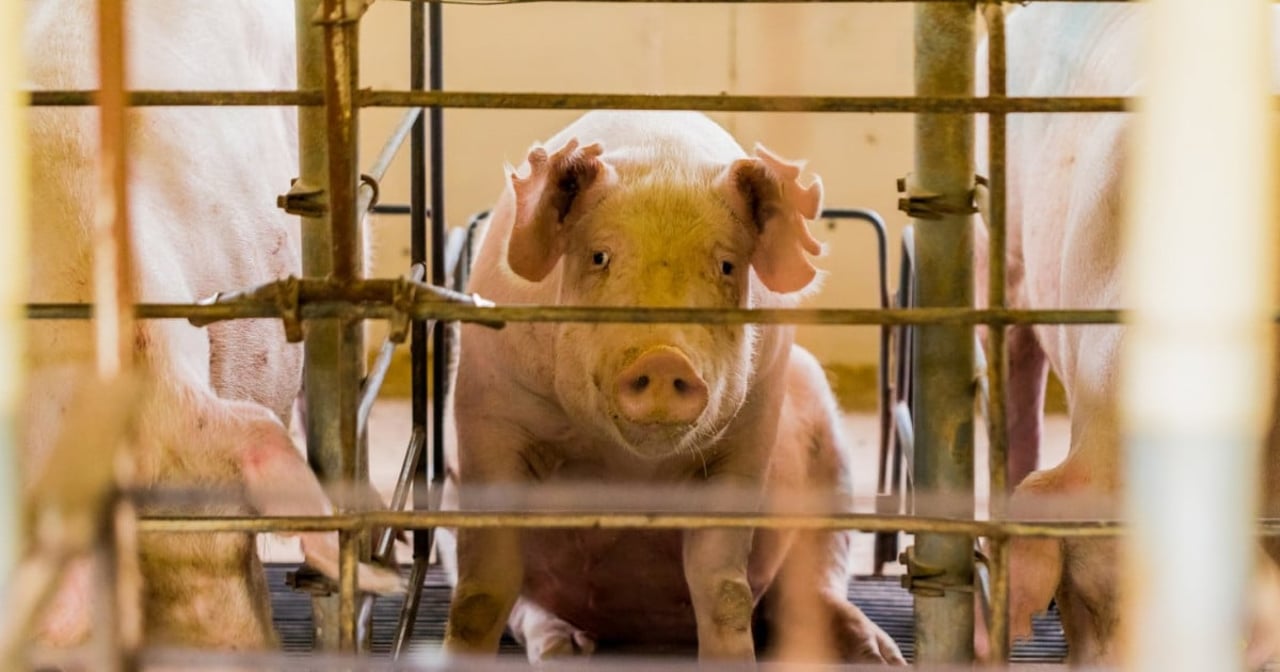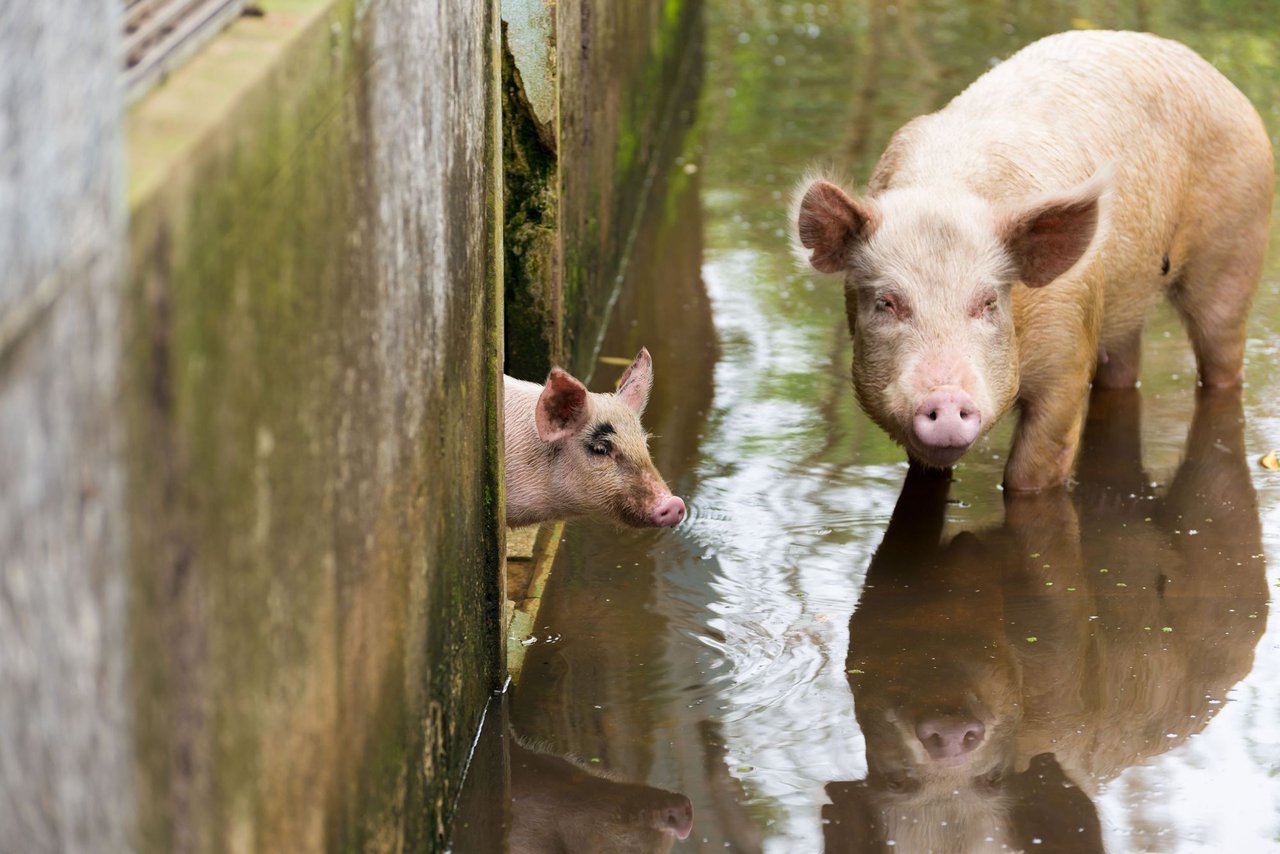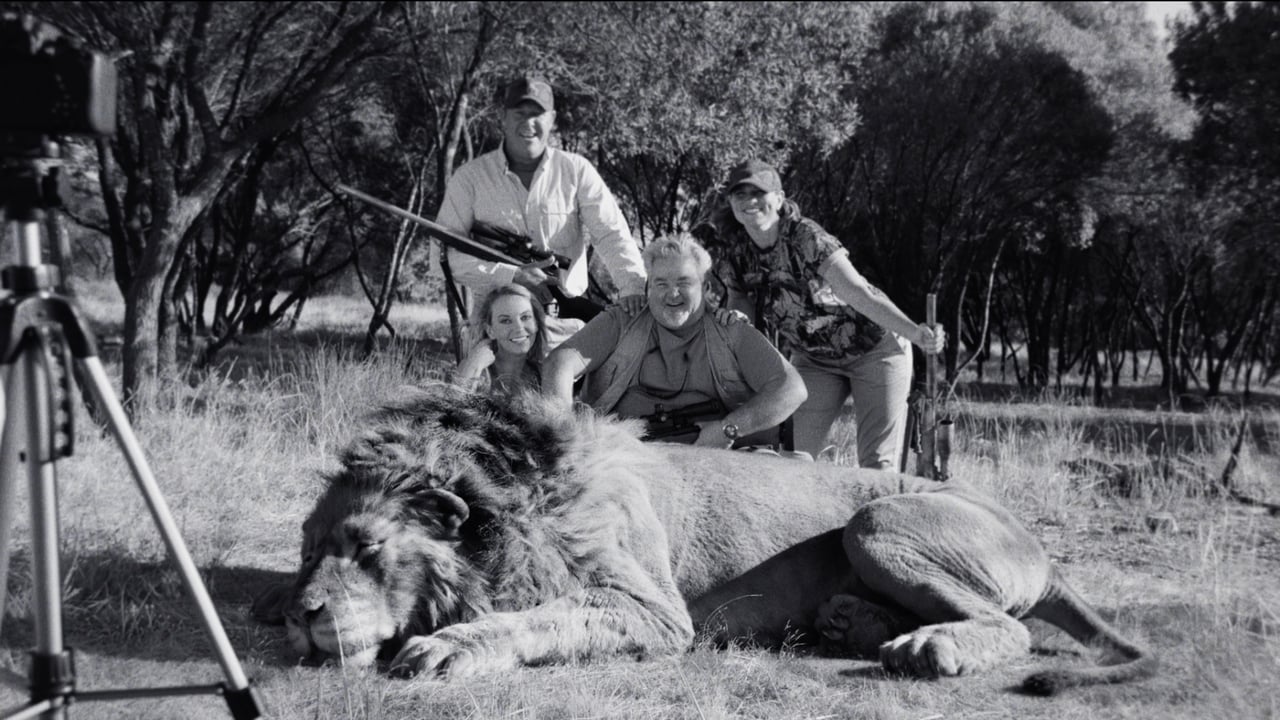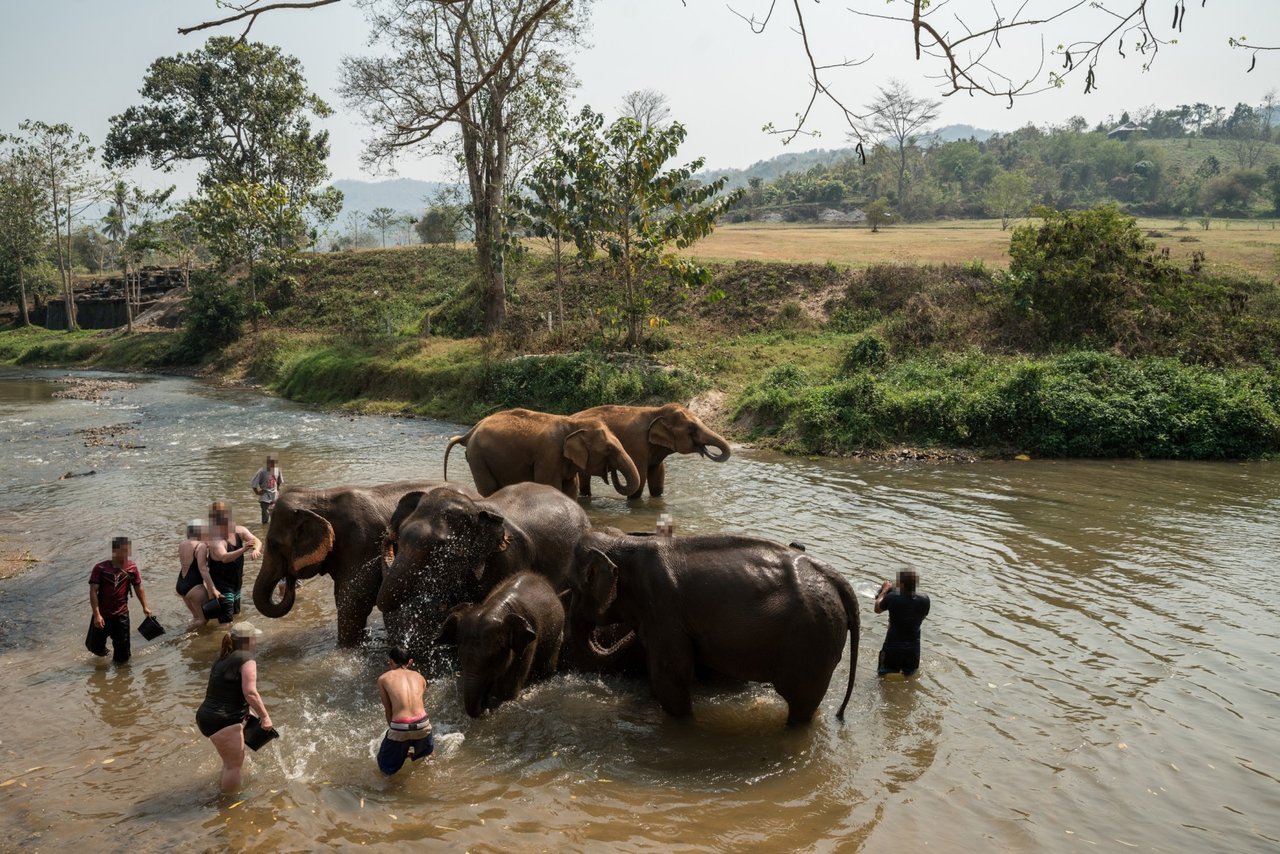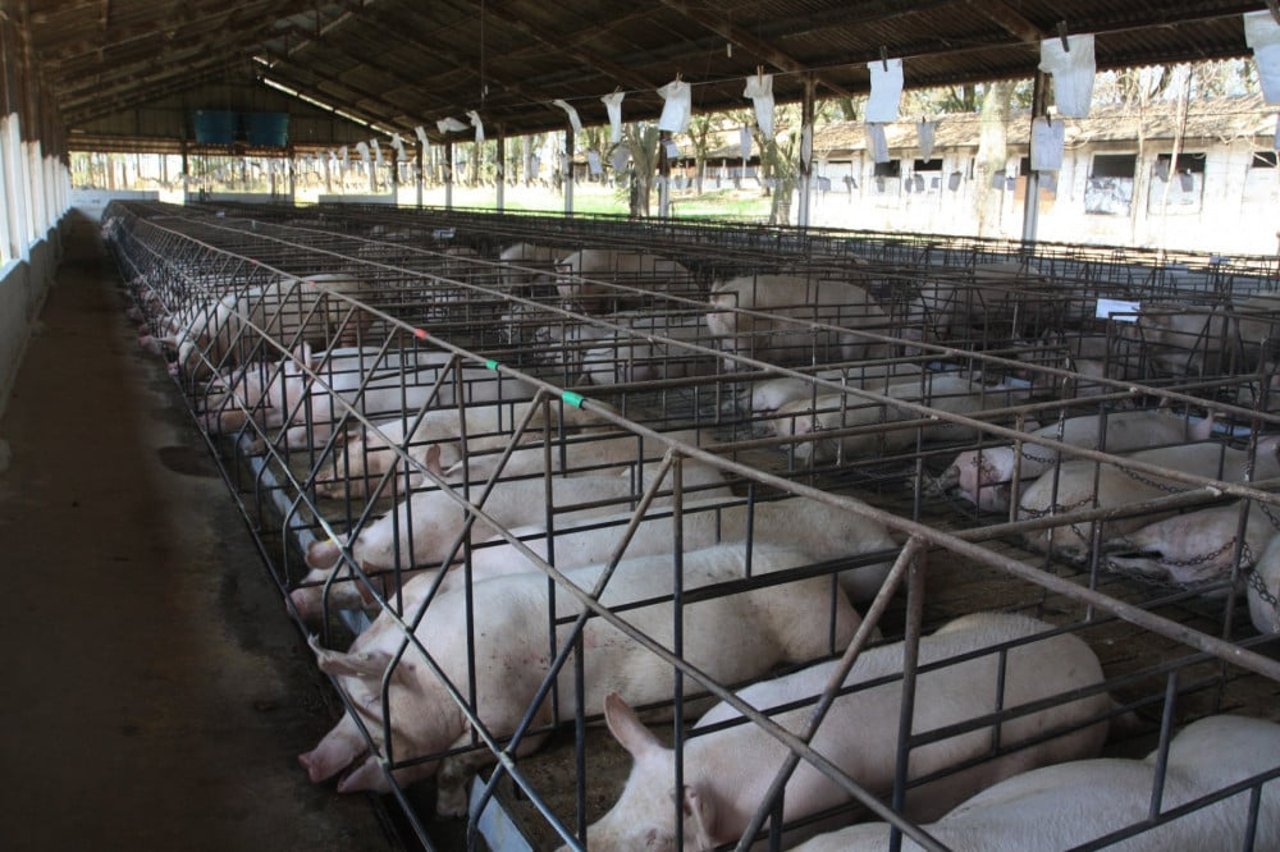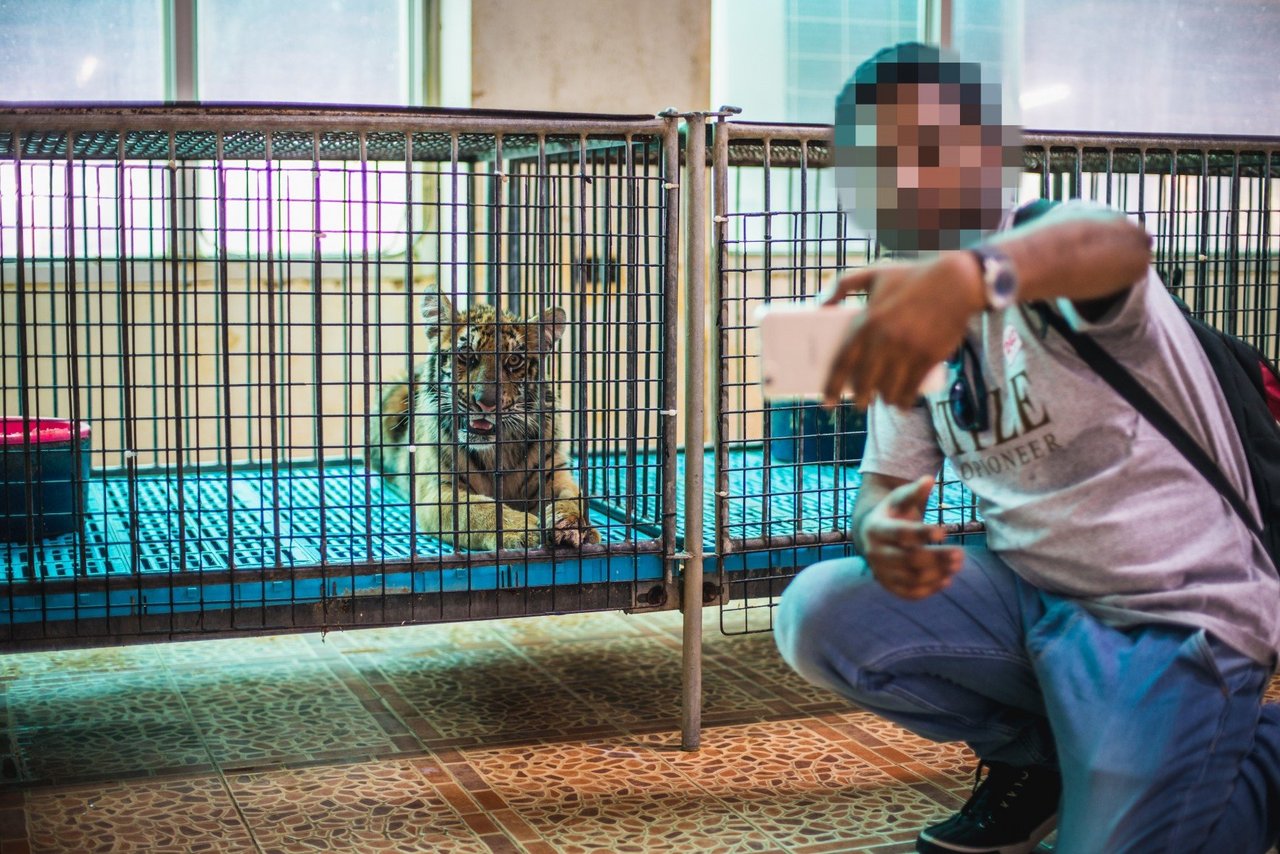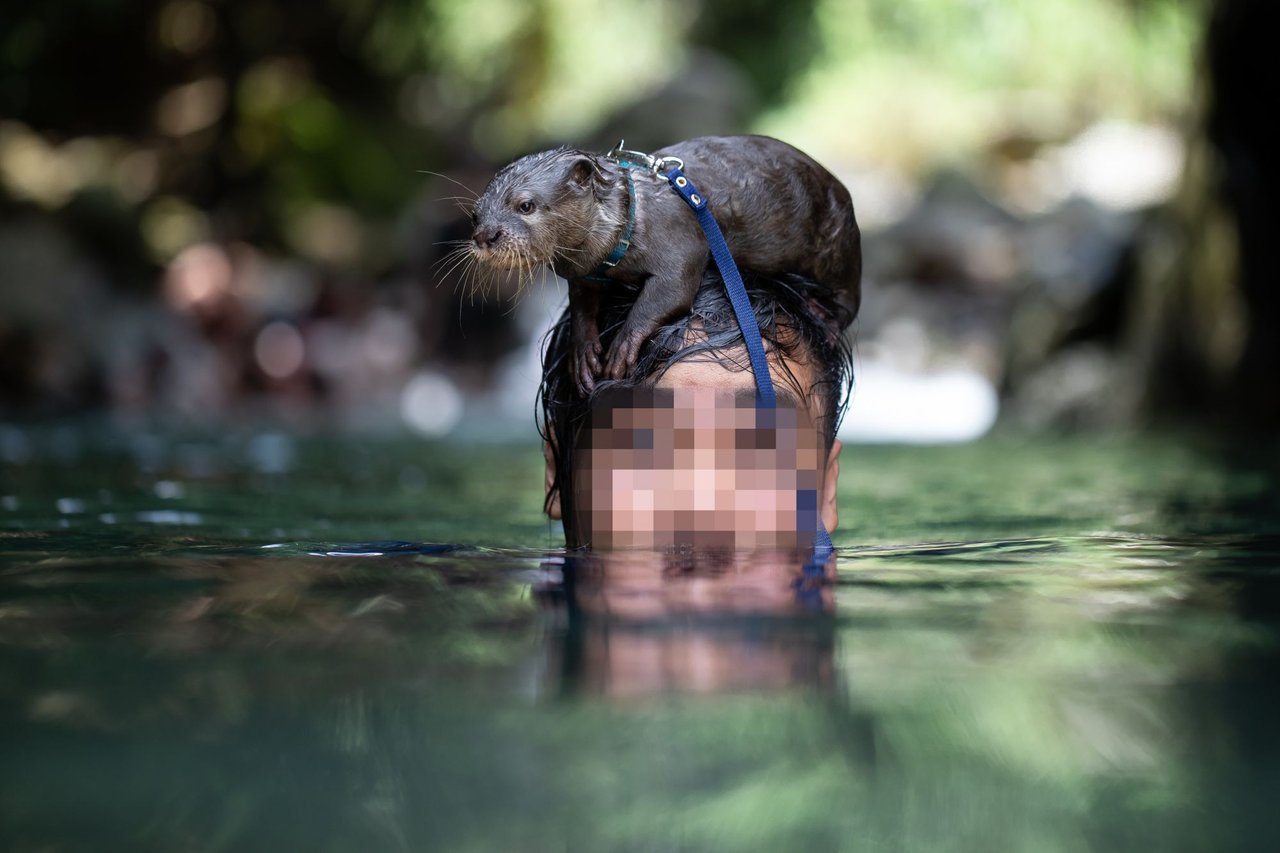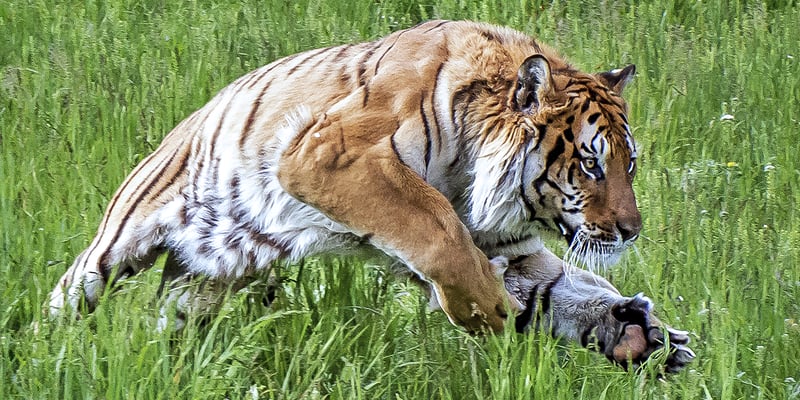
2020 is a year like no other but unfortunately, we at World Animal Protection, are not surprised by some of the negative events.
For years, we have been cautioning that the treatment of animals has not only an effect on their quality of life but also has implications for the humans that share the planet with them. The COVID-19 pandemic is believed to have originated at a wet market where wild animals were sold for consumption. Now, scientists are suggesting the next great pandemic could come from factory farms. If we want to protect animals and safeguard our health, there are a few practices we should leave in 2020.
Poaching Pangolins for Food and Traditional Medicine
In January, the first cases of coronavirus came to the United States and quickly spread throughout the nation, causing upwards of a quarter of a million deaths and over ten million infections here alone. It is widely believed the pandemic started in a wet market in Wuhan, China, possibly from pangolins and bats. The poaching of wild animals for food and traditional medicine has put people at risk before as zoonotic diseases jump species from animals to humans. It is likely this will happen again, on a much more devastating scale with COVID-19.
With plenty of plant-based medicines and foods available, we should end the brutal poaching and the eating of pangolins, the world’s most trafficked animal. Forever.
Dolphin Shows and Swim-With Experiences
When the US entertainment and travel industries came to a halt and venues such as SeaWorld and Miami Seaquarium shuttered their doors, it became abundantly clear that the suffering marine mammals such as dolphins and whales face in captivity is not an essential business. Not only do these venues rely on their minimal contributions to education and conservation to fool the public, but keeping these wide-ranging animals in captivity puts both their mental and physical health on the back burner. What’s even worse, SeaWorld applied for bailouts from the US government to keep their parks afloat—leaving us to wonder why we, the taxpayers, are funding this cruel and inhumane industry.
Factory Farming
Scientists have warned for years that the cruel and mass farming of animals could be the cause of another global pandemic. Because of the nature of these factories, where farmed animals are seen as nothing more than profits, they are fed low-dose antibiotics to stave off infections a stressful and immune-suppressing existence can cause. Continual, low-dose antibiotics have been proven to create superbugs or antibiotic-resistant bacteria that, when contracted by humans, can often not be treated with antibiotics. Antibiotic-resistant bacterial infections are on the rise in the US, killing upwards of 36,000 each year. While not all from factory farms, these superbugs were found by our own research on pork bought from some of the largest retailers in the country.
Add your name to our action to support the Farm System Reform Act today.
Denying Climate Change
Scientists around the world agree that there is a drastic climate shift and that humans are one of—if not the—main causes of this through our everyday actions. Just this year alone, we’ve seen wildfires ravage Australia and the Amazon, the most active hurricane season the US has ever seen, and catastrophic damage from tornadoes and el derechos in the Midwest.
World Animal Protection has been on the ground for more than 55 years making sure animals are not the forgotten victims of natural disasters by providing food, water, medical care, and other emergency assistance to animals in need. We have also evacuated animals from danger, and reunited animals and owners that have been separated. Unfortunately, the severity and amount of disasters is only increasing.
Animal agriculture is responsible for nearly 15% of climate emissions globally—more than all the cars, trains, planes, and other forms of transportation combined, making it one of the world’s worst climate polluters and contributing to major environmental disasters. According to the FAO, “Industrial meat and dairy production alone will undercut our ability to keep temperatures from rising to an apocalyptic scenario.”
Join our campaign for more planet-friendly foods by pledging to eat less meat today.
Now that we’re no longer denying climate change, it’s time to be prepared for the intensity and frequency of natural disasters all over the world. While some storms don’t allow time for evacuations, such as tornadoes and rapid floods, that’s even more reason to be prepared to leave at a moment’s notice—and that preparedness needs to include animals.
It’s time to make sure we have everything we need to take care of our pets in case of an emergency. Start now by making a Disaster Pet Preparedness Plan.
Trophy Hunting
Trophy hunting, or killing of wild animals for sport, is done for the sole purpose of entertainment at the expense of animal welfare and wealthy Americans are fueling the trophy hunting industry. In 2015, more than 50 percent of all canned-hunted lions in South Africa were done so at the hands of US trophy hunters.
Unfortunately, many people who take trophy hunting excursions are inexperienced hunters, and the animals suffer cruel and agonizing deaths at their hands. Learn more about the trophy hunting industry and how to protect animals.
Riding and Bathing Elephants
Elephants are big business for tourism venues–offering interactions such as shows, riding, bathing, or using them as photo props for selfies. However, wild animals like elephants suffer immensely in captivity and through brutal training, known as “the crush,” for entertainment like rides and bathing.
Our 2020 research found that as people learn about the cruelty of elephant rides and shows, they have been turning to elephant bathing activities. These experiences have the same cruel training process that leads to psychological and physical abuse of these animals.
Learn more about our Wildlife. Not Entertainers campaign to help protect elephants.
Gestation Crates
Gestation crates are metal cages, often the size of a refrigerator, used for mother pigs. Incredibly cruel, the crates restrict the pig’s movement, leaving them unable to turn around or lie down comfortably.
Gestation crates are an example of how the meat industry views farmed animals as cogs in a machine. Mother pigs are not seen as the sentient, caring, intelligent creatures they are. Rather, these animals are considered solely as units of production, responsible for birthing as many surviving piglets as possible.
Taking Selfies with Wild Animals
Despite the increased popularity of wild animal selfies on social media, few people consider the suffering these animals endure or the disruption that can result to their natural habitat when taking the photo.
Wild animals used for selfies are sometimes poached from the wild. Sloths, for example, are often taken from the Amazon treetops for these experiences. These typically calm, gentle animals are snatched from their natural habitats, forced to live in noisy, chaotic environments, and repeatedly passed around from tourist to tourist.
Help us end cruel wildlife selfies by pledging to the Wildlife Selfie Code today.
Fueling the Wild Pet Trade
While some animals in pet shops are not perceived by the general public as “wild” because they’re commonly sold, these animals continuously suffer in captivity for our companionship. Unlike dogs and cats, animals such as snakes, lizards, sugar gliders, and chinchillas are not domesticated and live in unsuitable captive environments when purchased as pets.
The wild pet trade thrives on poaching animals such as otters and parrots from the wild, often at the cost of animals’ lives. Those animals who do make it into someone’s home can suffer psychologically or physically as no captive environment can fully suit a wild animal’s needs.
Learn more about the wild pet trade and why we need to end it today.
---
As we look ahead to 2021, we should envision a more compassionate world for all, especially animals. Let’s leave these nine things in 2020 and create a kinder world together.
